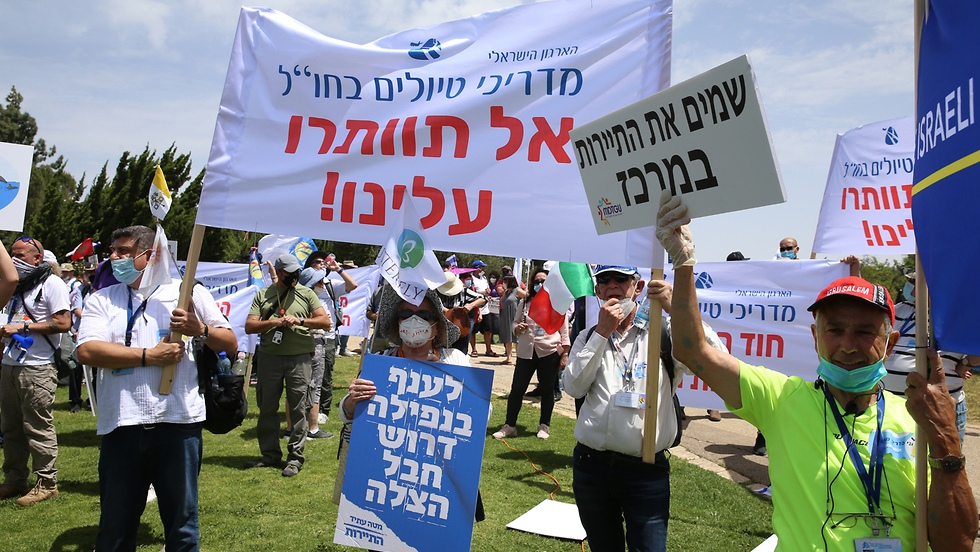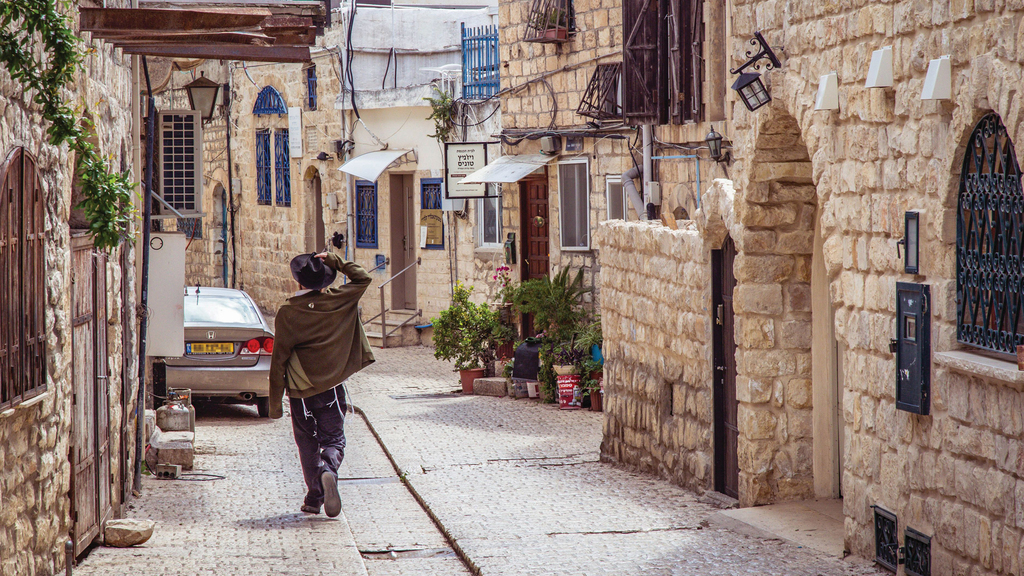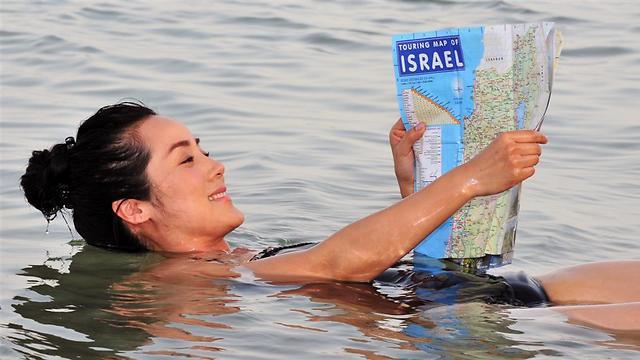With Israel's vaccination campaign underway at a rapid pace, the Tourism Ministry is tentatively anticipating the return of the foreign visitors in the spring and has prepared a work plan to preserve the necessary infrastructure and to be ready for the day after the pandemic.
The plan includes adapting to the coronavirus era across all areas pertaining to the ministry’s activities, including marketing, infrastructure and the tourist experience.
The year 2020 began with optimism for another record-breaking year for incoming tourism to Israel but ended with closed skies and a ban on arrivals to the country - the first time in Israel’s history that tourism was shut down.
The tourism industry, which enjoyed revenues of about NIS 23 billion in 2019, was hit one of the hardest by the crisis.
3 View gallery


Members of Israel's tourism industry protest outside the Knesset in May
(Photo: Amit Shabi)
Nearly 200,000 families employed in tourism lost their livelihood, prompting widespread protests by members of the industry who said that the government had failed to provide adequate relief for loss of income.
Tourism Ministry Director-General Amir Halevi said that 2020 “continued the tourism records of the previous two years and there was an expectation that we would welcome, for the first time in the history of the country, the five millionth tourist. Instead, the world stopped, and we moved into survival mode.”
3 View gallery


The northern city of Safed is a traditionally popular tourist destination
(Photo: Shutterstock)
Halevi added: “Thanks to the vaccines, we are beginning to see the light of day, we are preparing tailored work plans and various tools for bringing back incoming tourism.
"We hope that in the coming months we will once again witness incoming tourism traffic, which is critical to employment and an important engine in the Israeli economy.”
With the recent signing of normalization agreements with the United Arab Emirates and Bahrain - known as the Abraham Accords - the ministry has developed a strategy to promote incoming tourism from those countries.


